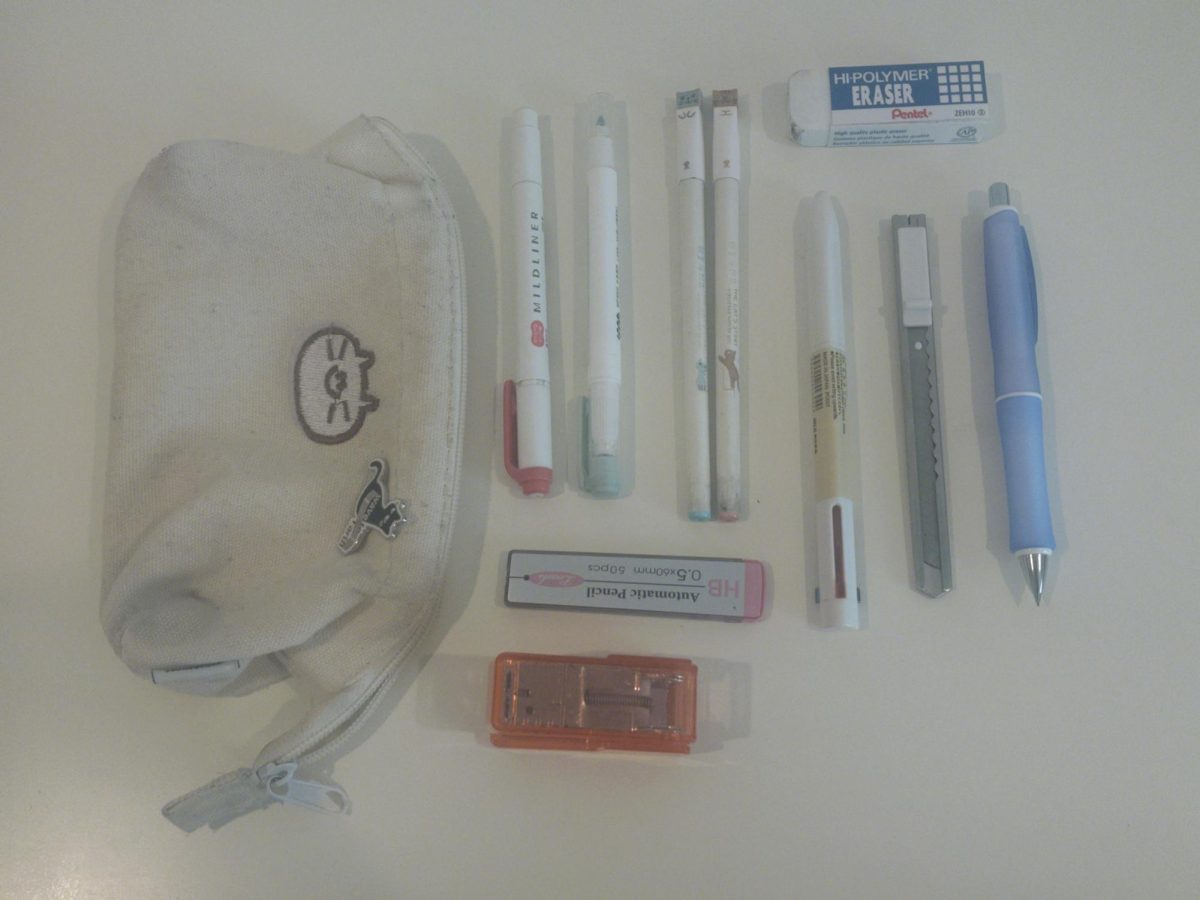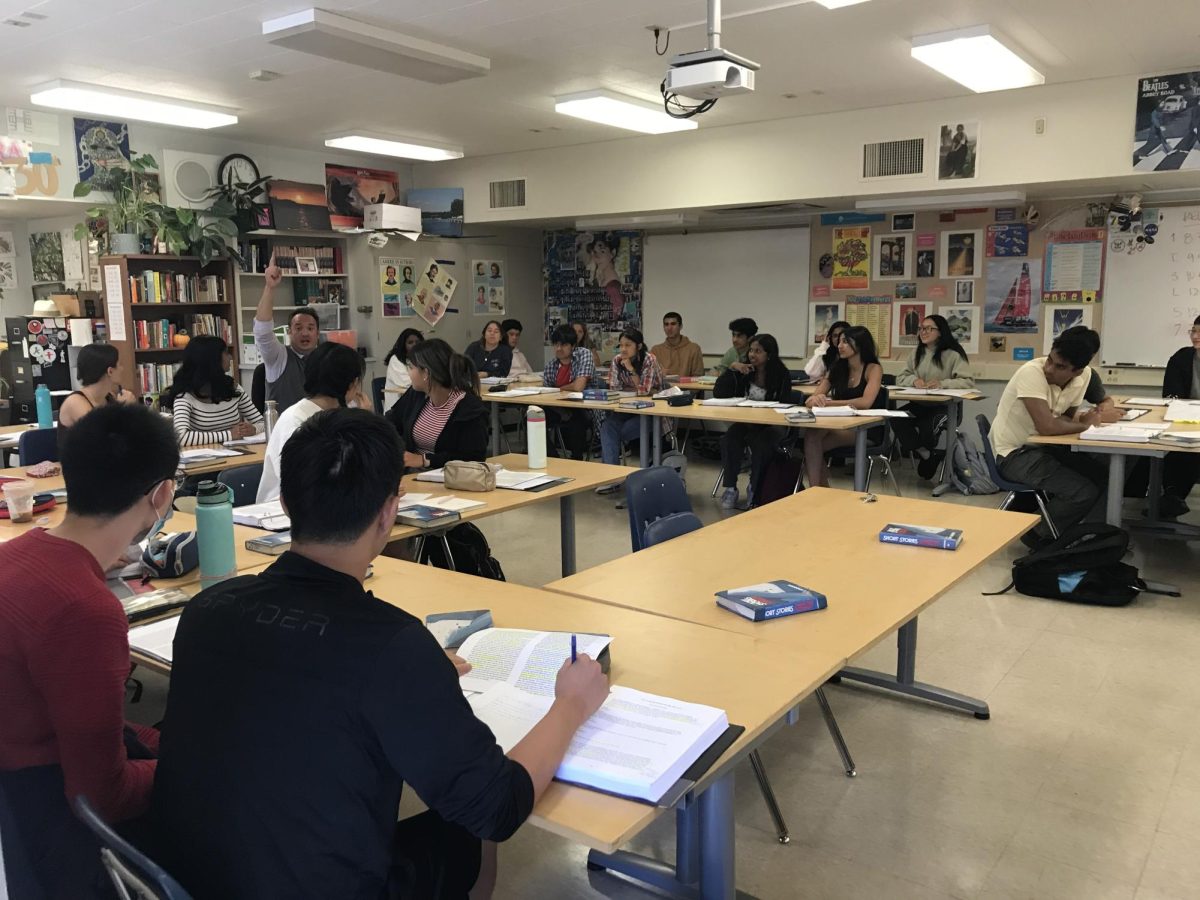AP Language and Composition (Lang) and AP Literature (Lit) are widely regarded as two of the most difficult English classes the school offers. They are classes only seniors can take.
According to College Board, only 9% and 13% of test takers score a 5 on AP Lang and AP Lit. Teachers and alumni offered several tips for doing well in the classes and scoring well on the May AP test.
AP Lang: where English meets Philosophy
Despite its name, this class differs from other traditional English classes because, while the class still has two to three essays per semester, it utilizes a discussion-based model rather than a writing or reading one. At SHS, the class also focuses on philosophical concepts and texts that students closely analyze.
Erick Rector, one of three AP Lang teachers this year along with Jason Friend and Emily Wu, noted his students tend to find the Ethics unit particularly difficult and suggested spending ample time reviewing in preparation for its exam.
Class of ‘24 alumna Tara Natarajan recommended spending extra time reviewing for the semester midterms. They cover a lot of material and test the class on specific concepts from a multitude of readings — so understanding the specific details and structure of certain arguments is crucial.
- Start early and do the readings
Rector’s No. 1 tip for success in his class is to spread out study time instead of cramming material the day before the exam.
“You cannot do it the weekend before; you have to maintain a regular and rigorous understanding of the readings and the nuanced arguments within the readings,” Rector said.
Natarajan agreed that thoroughly interacting with the readings daily and pacing her homework helped her perform much better during exams.
“I think people do often lose points on reading checks and small reading quizzes which they could have easily gotten by just doing the reading systematically,” Natarajan said. “I definitely did worse when I slacked off and much better when I was well-prepared.”
Natarajan notes that in AP Lang, the readings differ from other English classes like English 11 Honors because they focus heavily on philosophical aspects. With a “light reading” featuring 1 double sided page of dense text with confusing vernacular it almost seems as if these texts were meant to not be understood. To properly analyze the texts, students need to read with an analytical mindset and spend time decoding abstract concepts. Since some of the texts are thousands of years old and often confusing, taking your time while reading and re-reading can be helpful.
According to Natarajan, even though analyzing and annotating the readings can take an hour or more per night, it’s still extremely important to complete them consistently and pay immense attention to detail while going over them. The grade students receive on tests and midterms is rooted in their degree of understanding of each reading and how prepared they are to answer detailed questions derived from the philosophical questions or assertions they pose.
- Never assume the MCQ will be easy
On Rector’s tests, even the multiple-choice section, Natarajan said, there are no “free points” from easy questions and they can’t be crack through pure memorization; instead, AP Lang students are expected be able to understand each text deeply and comprehend the concepts that the author is trying to convey, both implicitly and explicitly. Rector will often ask his students to compare and contrast the ideas of multiple texts, a task that can be difficult to carry out.
Additionally, for each reading, students need to know the author’s general argument as well as the structure and techniques used to set up and justify the argument. This includes counterarguments the authors address, the examples and explanations they use to justify their position, as well as the way different authors and different texts compare, within the unit’s general theme.
Despite the class’s high level of difficulty, Natarajan still recommends seniors take it, as the skills it teaches can be applied to numerous other aspects of life.
“Even though it’s definitely hard, both the concepts and skills you learn are very rewarding because they really challenge you to think differently about the world and about yourself,” Natarajan said. “If your heart is really in it you’ll enjoy it.”
AP Lit: A literary paradise
AP Literature, taught by Suzanne Herzman, is more similar to other English classes students take. AP Lit focuses on fiction rather than philosophy and is an intensive writing class. Another aspect of AP Lit is that it includes a Personal Essay Unit geared toward succeeding on college applications.
- Ask for feedback on essays
Since there are no traditional tests in AP Lit, the majority of students’ grade comes from essays and projects. To earn a good grade on any major essay in AP Lit, Class of 24’ alumna Maithreyi Bharathi recommends that students start on them early so that they have enough time to receive feedback on two or even three drafts. She highly recommends getting every essay peer-reviewed to fix any errors that could lower your score. Like many other English teachers, Herzman also allows students to ask her to review their essays during tutorial in advance of handing them in, a practice that helps students develop their skills.
- Avoid blowing off the readings
While homework in AP Lit may be due at the end of each unit there is still a lot of homework that gets assigned daily. One of the most common mistakes students going in AP Lit make is not doing the readings as they are assigned.
- Watch out for the “In Conversation” paper and other essays
AP Lit seeks to elevate the sophistication of students’ essay writing and encourages them to think beyond the restrictions of a typical five-paragraph model (introduction paragraph, three body paragraphs and a concluding paragraph). In English 9, 10 and 11, many students learn to depend on this formula but, since papers cover a lot of complex content and ideas, Herzman advises students to find the right structure for the ideas they are conveying, and that structure might be seven, eight or more paragraphs.
Alumni told The Falcon they were abundantly ready for the AP test and had expanded their abilities greatly.
“Lit was one of my favorite classes of senior year. There were definitely hurdles, but I’m glad I took it,” Bharathi said. “Working on my final project is still one of my fondest memories from senior year and the essay-writing techniques I learned have been some of the most valuable from high school.”





























